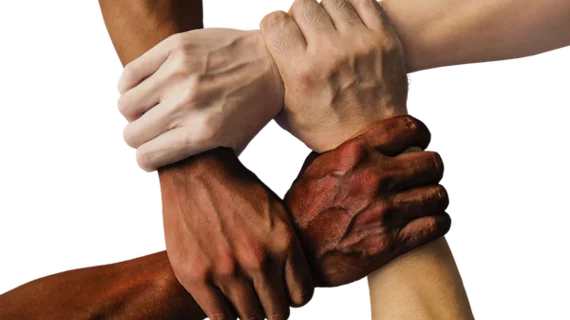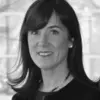RSNA 2023: Speaker calls for 'less talk, more action,' on diversity, equity and inclusion
CHICAGO—What does the recent Supreme Court decision striking down affirmative action mean for diversity, equity, and inclusion programs? For Reed Omary, MD, a professor of radiology at Vanderbilt University Medical Center, the decision presents an opportunity to “double down and do the work.”
“All is not lost, we just have to ship the words we use,” he said, adding that the basic foundation of DEI is a message of “you belong here," a popular idea that very few people oppose.
Omary’s presentation was part of an event titled “Vice Chair of DEI? What does that Mean?” held at this year’s annual Radiological Society of North America conference in Chicago. Omary focused his lecture on what it means to work as a leader in DEI, as opposed to what he views as the all-too-common practice of “DEI washing."
For those seeking a leadership role with a DEI title attached, Omary has three “asks” of them to avoid being part of a culture of symbolic inaction.
1. Align on resource goals
Omary said it's important to clarify stated goals for an organization, but it's also crucial to understand what resources will actually be provided for DEI initiatives. He suggested candidates push for “concrete” answers before accepting a position, citing research that shows “50% of the time” academic medicine gives lip service to the importance of equity, when in reality organizations are unwilling to provide proper funding.
2. Less talk, more action
Building off the first point, Omary believes the best ideas in DEI are those that actually impact the lives of real people in a positive way. Looking beyond the internal workforce, he called for leaders to focus on improving the livelihood of underserved populations in nearby ZIP codes.
“Sometimes we need to think, what are we actually doing that is making a difference to the community that we serve?” he asked, praising an initiative where Boston Medical Center subsidized the cost of energy bills for patients in need.
3. Link people and the planet
Omary said he is taking a break from his role at Vanderbilt to travel the world and better understand the hardships people face in daily life. He recently realized that equity is not possible if it isn’t combined with efforts to tackle environmental concerns.
“Climate change affects those communities that are least able to tolerate the burden of climate change, and at the same time are the ones who have least contributed to it,” he said. “Coming from a fairness perspective, we have a major issue here.”
Omary believes strategies to improve climate change and equity are two sides of the same coin: “If you have an equity strategy, [you should be] addressing the waste—either environmental [pollution] or carbon emission—that are spewing out from our health systems into those local communities. [Our health systems are] not in the same communities where the physicians are living, they are in ZIP codes least able to tolerate it,” he said, adding that health institutions are guilty of directly suppressing the “growth” of impoverished populations when they fail to care for the environment.
The event was sponsored by the RSNA Committee on Diversity, Equity, and Inclusion.

